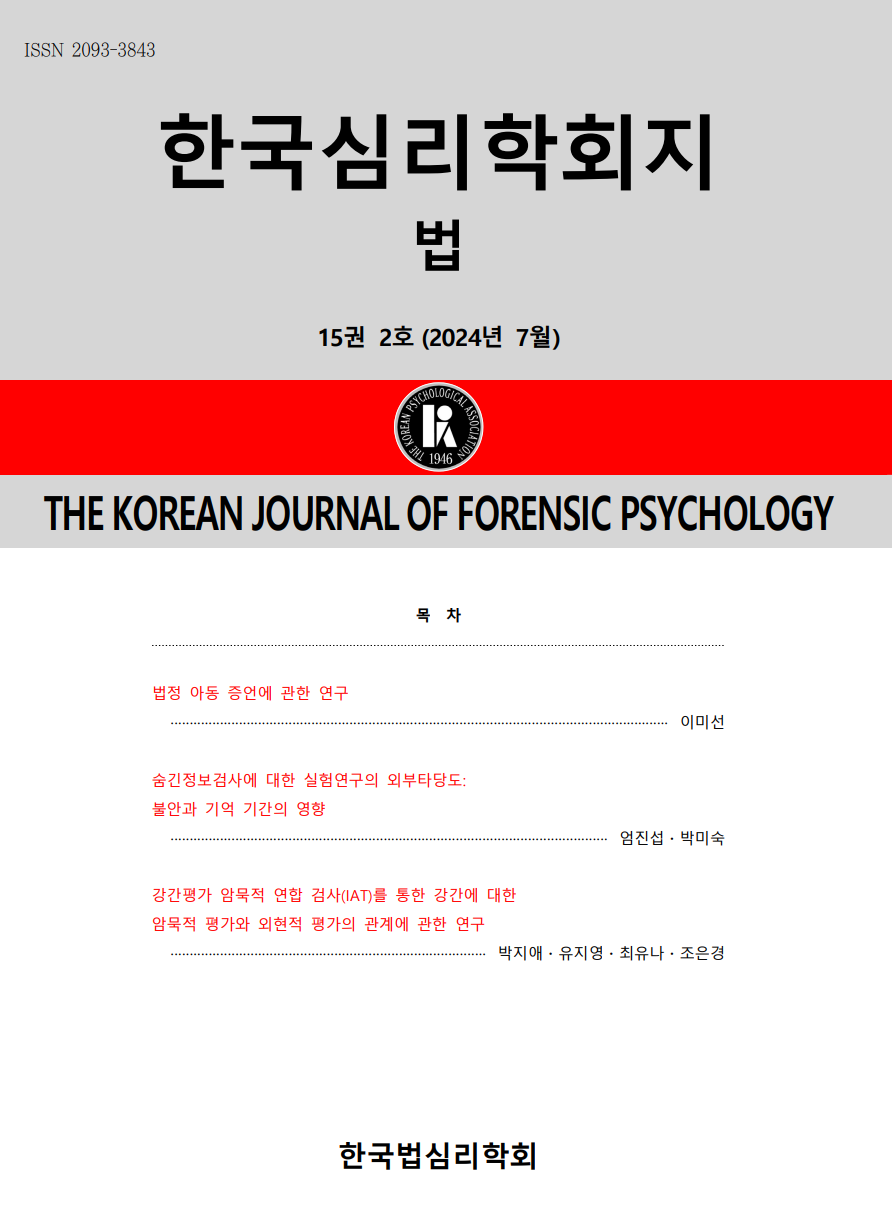 ISSN : 2093-3843
ISSN : 2093-3843
The present studies examined the nationality-stereotypic crime of in the South Korea context and whether congruency between the defendant’s nationality and stereotypic crime type would effect the judgment of legal decisions. Based on the pilot study which identified nationality-stereotypic crimes, the main study examined the effect of the defendant’s nationality on legal decisions in the crimes of assault, voice phishing, and drug trafficking cases. Total of 504 participants between their 20s to 50s were recruited and the study was conducted through online survey. This study employed a 3(defendant’s nationality: South Korea, China, the United States) single factor between-subjects design in each crime types. Results demonstrated that there were no significant results between defendant’s nationality in voice phishing and drug traifficking cases. Furhtermore, inconsistent with expectations, participants provided more guilty verdicts and higher guilty probability towards Chinese defendant than Korean and American in the assault case. Implications of the findings, limitations and future directions were discussed.